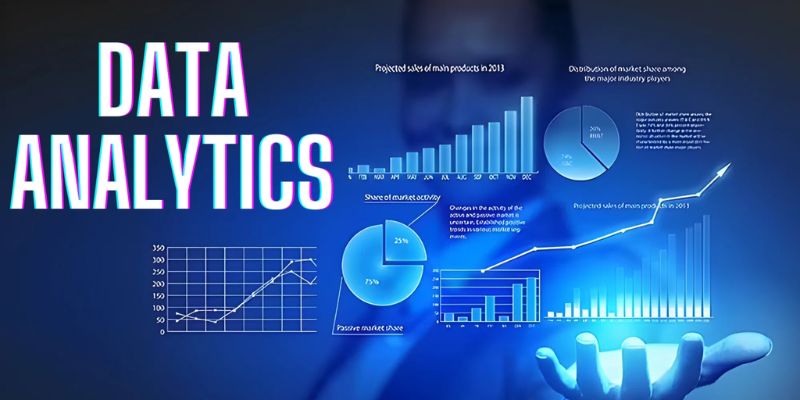
Data Analytics has become a crucial part of decision-making for businesses and individuals alike. Whether you are looking to analyze customer trends, monitor performance, or make data-driven decisions, the right tools can make a huge difference. With so many options available, it can be overwhelming to choose the best one for your needs. This blog will discuss How You Choose the Right Data Analytics Tools for Your Needs. Ensuring you make a well-informed choice that suits your goals. If you’re looking to expand your skills in this field, enrolling in a Data Analytics Courses in Coimbatore can provide hands-on experience with some of the best tools available.
Understand Your Data Needs
Before diving into different tools, it’s essential to understand your specific data needs. Do you need to analyze large datasets, visualize data for presentations, or simply perform basic reporting? By identifying what kind of data you’ll be working with and how you want to interact with it, you can better determine the tools that will suit your purpose. Not every tool fits every task, so knowing your end goals can help narrow down your options.
Evaluate the Type of Data You Work With
Different tools specialize in handling various types of data. If you’re dealing with structured data (like in Excel sheets or databases), your needs will differ from someone working with unstructured data such as social media posts or video files. Some tools are specifically designed for big data, while others are more suited for small datasets. Choosing the right tool based on your data type is crucial, and a Data Analytics Course in Pondicherry can help you master handling both structured and unstructured data efficiently.
User-Friendly Interface
A tool with a user-friendly interface is crucial, especially if you’re not an expert in Data Analytics. The last thing you want is to spend hours trying to understand how to use the software. Look for tools that offer intuitive dashboards, drag-and-drop features, or pre-built templates. This will make it easier for you and your team to adopt the tool quickly and get the most out of it without excessive training.
Scalability for Future Growth
Your Data Analytics needs may grow as your business or project expands. It’s important to choose a tool that is scalable and can handle increasing amounts of data over time. While some tools are perfect for small-scale operations, they may not perform well when your data grows. By taking a Data Analytics Course in Trivandrum, you’ll gain insight into how to select tools that can scale with your business needs.
Integration with Existing Systems
A major factor to consider is whether the Data Analytics tool can integrate seamlessly with your current systems. For example, if you’re already using a customer relationship management (CRM) system or enterprise resource planning (ERP) software, it’s important that your analytics tool can pull data from these sources easily. This ensures you get a holistic view of your operations without the hassle of manual data entry or complicated imports.
Budget and Cost Efficiency
When selecting a Data Analytics tool, you’ll want to stay within your budget. Some tools are free or open-source, while others require a subscription or a one-time purchase. Evaluate how much you’re willing to spend and whether the features offered justify the cost. A Data Analytics Course in Madurai can help you assess which tools provide the best value for your specific needs, allowing you to make an informed financial decision.
Support and Community
Even the best tools can run into issues, which is why having reliable customer support is essential. Some platforms offer extensive documentation, tutorials, and 24/7 customer support, while others rely more on community forums. If you’re new to Data Analytics, you may want a tool with strong customer service or one that has an active community where you can seek help and advice.
Data Security and Compliance
In today’s world, data privacy is a significant concern. If you’re dealing with sensitive or confidential data, it’s important to choose a tool that offers robust security features. Ensure the tool is compliant with data protection laws such as GDPR or CCPA, depending on your region. Features like encryption, user authentication, and access control can provide additional layers of security to protect your data.
In today’s world, data privacy is a significant concern. If you’re dealing with sensitive or confidential data, it’s important to choose a tool that offers robust security features. Ensure the tool is compliant with data protection laws such as GDPR or CCPA, depending on your region. A Data Analytics can guide you through understanding compliance and security best practices, ensuring you choose tools that protect your data effectively.
Customizability and Flexibility
No two businesses are alike, which is why it’s important to choose a Data Analytics tool that can be customized to your unique needs. Some tools offer out-of-the-box features, while others provide a wide range of customizations, from dashboards to specific data processing workflows. The more flexible the tool, the easier it will be to adapt it to your specific requirements, providing you with the insights that matter most to your organization.
Cloud-Based vs. On-Premise Solutions
Another important consideration is whether you want a cloud-based solution or an on-premise tool. Cloud-based tools offer the benefit of accessibility from anywhere, making them ideal for teams that work remotely. On-premise solutions, on the other hand, give you greater control over your data but may require more IT resources for maintenance and updates. Depending on your organization’s structure and data accessibility needs, you can decide which option is best for you.
Choosing the right Data Analytics tool is a crucial decision that can significantly impact the efficiency of your data processing and decision-making. By understanding your specific data needs, evaluating the user interface, considering scalability, and ensuring integration with existing systems, you can make an informed choice that aligns with your goals. Additionally, factors like budget, support, security, and customizability should not be overlooked. A Data Analytics Course in Tirupur can equip you with the knowledge to make these critical decisions, turning data into actionable insights that drive success for your business or project.






